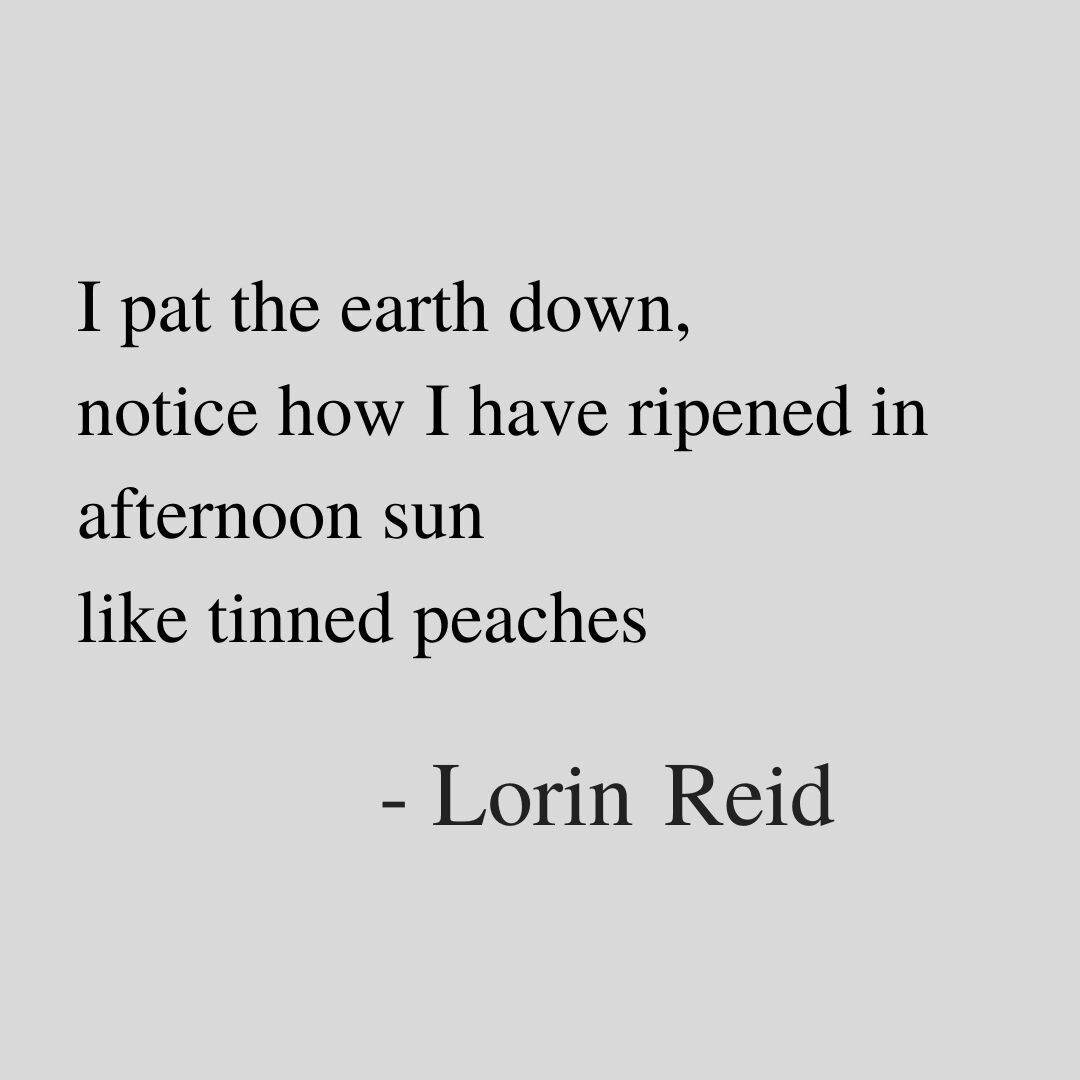The Mango Tree & Leave a Chair for Her by Scott-Patrick Mitchell
Content Warning: grief, death, cancer.
The Mango Tree
i.
On seeing them, her eyes delight: she must have been a beautiful child. Their memory is a marvel. How, back in India, she’d talk of mangos as big as her head. Hell, myth and magic conspire to make mangos the size of the sun, the way she talks about them. In a world at war, for a second time, mangos were like friends: they always soothed the tongue, made you feel young. Welcome. As does her remembering.
ii.
One summer, a revelation (a revolution) took place. Imagine: old lady, short, cerulean eyes, fingers a knot tied from birthing lives, finding that one brilliant mango. A moment, eureka in bathtub joy spilling over. Time stopping, glottal. Chin, all sparkle. Eyes in a life 60 years ago. I can’t remember if she finished the mango, gripped the counter, grabbed keys, then drove back to their place of purchase, arms laden with even more mangos. But let’s say she did. Because there is beauty in such comedy. Irrespective, she held seed aloft, planted perfection in a trough. And then waited.
iii.
Green thumbs know Earth’s hum. How to chant plant into being. Add water. Add love. Coax with notes in way you tell a child you’ve got this. Grow up, float. The transition for seedling to sapling to something into dirt, grappling, is a matter of seasons.
iv.
The year my sister took ill, for the last time, I had to look after the mango tree. As fugue bruise, I stumbled into garden, hose in hand. Waiting for news from England: there, mother watched daughter unfurl, sicken. When the news finally came, the water salted. Mangos were left unpicked, rotted. When she returned home, eyes redder than sunset, I helped mother pick the dead weight clean, bury it in the garden.
v.
Three years later, in a house still heaving with grief, the mango tree offered relief: a bounty of fruit crowned boughs. That summer our family laughed as mango filled the house. With every bite, we let ourselves contract in to each other. There are so many the grandkids exclaimed as mother carved up fruit for them. Healing is a home learning how to taste again. At the end of each mango, mother said your sister would have loved these. That mantra made the room still as our belly’s swelled. Our veins sung sticky.
vi.
There isn’t a particular point at which grief ends. It never does. But, as if a tree learning to lean with fruit, you carry it. There is a knowing that grief circles round, is a season you must move through. Just as the mango tree, sentinel of scented heart, plays its part in giving us back to us. And so I wait for the sun to weigh branches down, fill my palm with mango-light.
Leave a Chair For Her
It is Christmas Day. Our house is a perfume of cultures: the aroma of freshly baked Lebkuchen, according to grandfather’s recipe; that cranberry tang coupled with roasted turkey; a spicy sting of India soaked into the stuffing, adding just a hint of mother’s motherland. These elements of the world are woven into pots and pans and Christmas dinner plans. Our collective origins simmer together to create an atlas of flavours.
The relatives will be here soon.
The lounge has the beginning of a bombsite about it. Bows and wrapping paper, torn and tattered, scatter the floor. There are two small piles of presents, shucked of wrapping paper skin. In my mother’s pile: a new chrome coffee machine; some crime novels; a book on how to make authentic Indian pickles. In my pile: poetry and poetry and poetry.
Our fake tree is a bombastic explosion of silver and blue baubles. Lights twinkle a sharp crisp cyan. This year, the tree’s theme is wintertime England. The drifts, the snow, the icicles. Such things I miss, dearly. Especially here in Perth, the sunburnt city where white hot UV bites the skin, festoons sweat across the forehead.
But still… something is missing. Not a country. Or a gift. Rather, a person.
The relatives will be here soon.
‘Set the table, the others will be here any minute,’ my mother says, not looking up from her kitchen craft.
She is in her early eighties, but she is still a powerhouse of meal preparation, nimble with fingers and knife, the logistics of what needs to be cooked when. Long straight white hair reaches down her back. She is cutting chicken for a satay stir fry. Our black cat, Malarkey, mewls for fat, for scraps. Mother curses at him in Hindi, making some reference to the integrity of his mother in a tongue neither him nor I can fully decode. The tone though, the tone we both comprehend clearly.
Malarkey scampers off. I smile. Mother fusses over ingredients.
‘How many we expecting? Nine?’
Plates clatter into my hand as I count them.
‘Ten.’
‘Ten?’
‘Yes, ten. Remember our new tradition? We set a place for Anne.’
Anne: her, who is missing.
In our house there are 21 photographs of my sister Anne: six in the lounge; five in the dining room; four on the fridge; three in my bedroom; two in the hallway; one in my mum’s room. In every single photograph, Anne is wearing pink, her favourite colour. In every single photograph she has a smile as wide as the space between us. Even in the photos on the fridge where she is wearing wigs to hide her bald head. Even in the wigless photo, where she is wearing cartoon reindeer antlers, the one she sent with the tagline cancer may never consider the holidays, but I still do, love Annie.
I turn blue at the edges, remembering her, her passion, her smile. How, during her final Christmas, when the cancer-related dementia kicked in, the presents and cards came from England with notes written in her husband’s handwriting. How, during the final phone call we ever had, she wished me Happy Holidays five times, each time her voice bursting with excitement. My eyes teared when she apologised for not sending presents – she’d been so busy with hospital and chemo she’d forgotten – even though the gifts had arrived three days earlier.
‘It’s ok,’ I finally said. ‘I didn’t want anything for Christmas anyway… except to hear from you!’
‘It’s snowing here. Is it hot there?’
It was, but I was shivering.
The worst part? This final phone call had taken place in February.
Remembering this, I turn bluer. A silvery blue. Like the baubles on the tree. Or the blue of her eyes in every photograph, electric with smile and simply being alive. Or the blue down the beach, swallowing air, lurching.
‘Set the places. They’ll be here any minute.’
I set ten places.
The family arrives. The house fills with boisterous noise. They are laden with smiles, salads, more presents. I receive two writing journals, both blank paged, and more poetry books. Always poetry books. I smile a little bit wider after opening each gift, but still… something is missing. Or rather, someone.
We sit to eat. There is more than enough food, an abundance of dishes. Each speaks of a different country, a different familial origin: Germany; India; England; Australia. We bring this all together with the ritual of cracking crackers. One of us always gets confused about how the interlinking of arms is meant to go. Laughing ensues.
We pull, snap, bang. We uncrinkle paper crowns, swap crappy cracker gifts and dad joke after dad joke. My mother stands, walks over to the seat saved for Anne, places a pink paper crown on her plate. We keep punning and groaning, allowing mum this moment, this symbol, our cheeks pinking from grins and blushing from the strain of laughter. My eyes wet at the edging.
We eat, joke, rib each other, swap tales made taller by the telling.
‘A toast,’ mum says. ‘To those here. To those here in spirit.’
In the clinking of glasses, in the fondness of familiarity, I see my sister’s smile pass from mouth to mouth, growing wider and wider each time. Her, gone, lost, missing: she returns via tradition. Each time we gather, each time we leave a chair for her, Anne’s memory becomes stronger through the binding of our love, fills the missing space. Our smiles stretch wide as her spirit enters the room.
Executive Producers
Sue White
Daniel Henson






